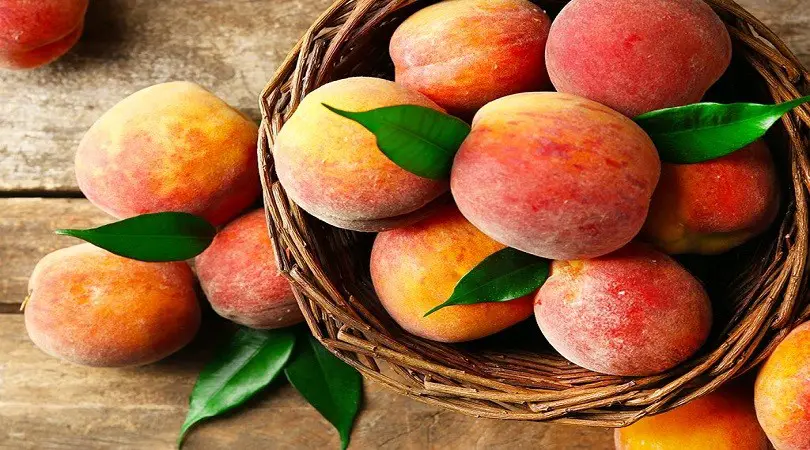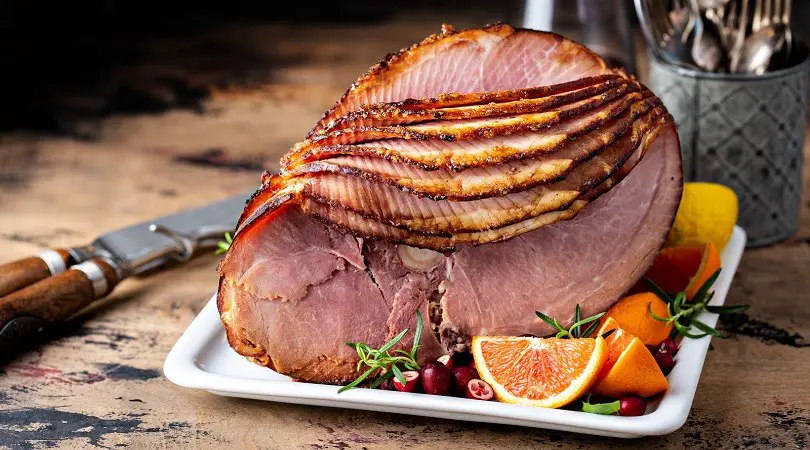Last Updated on January 6, 2025
Yes, you can safely eat ricotta cheese during pregnancy. It is a safe and nutritious option.
Ricotta cheese is a soft cheese made from whey, a byproduct of cheese-making. It is a high-protein, low-fat cheese that can be a healthy addition to your pregnancy diet. Ricotta cheese is a good source of calcium, which is essential for the development of your baby’s bones and teeth.
It also contains other important nutrients such as vitamin A, vitamin B12, and phosphorus. However, it is important to note that not all types of ricotta cheese are safe for pregnant women. Some varieties may be made from unpasteurized milk, which can carry harmful bacteria such as Listeria. It is crucial to check the label and choose ricotta cheese made from pasteurized milk to avoid any potential risks. Ricotta cheese can be a nutritious and safe choice for pregnant women, as long as it is made from pasteurized milk.

Safety Concerns And Pregnancy Guidelines
Pregnant women should exercise caution when consuming ricotta cheese due to potential safety concerns. Consult the pregnancy guidelines to determine whether it is safe for consumption during pregnancy.
Pregnancy is a special time when you need to pay extra attention to your diet and make sure you’re making healthy choices for you and your baby. While ricotta cheese can be a delicious addition to many dishes, you might be wondering if it’s safe to consume during pregnancy.
In this section, we will explore the safety concerns and pregnancy guidelines related to eating ricotta cheese while pregnant.
Pregnancy And Food Safety
When it comes to pregnancy and food safety, there are a few important considerations to keep in mind:
- Foodborne illnesses: Pregnant women are more susceptible to foodborne illnesses due to changes in their immune systems. It’s crucial to avoid foods that have a higher risk of contamination.
- Listeria risk: Listeria is a harmful bacteria that can lead to serious health complications in both the mother and the unborn baby. Certain foods, including soft cheeses like ricotta, can be a potential source of listeria.
- Pasteurization: Opt for pasteurized ricotta cheese, as it is considered safe to consume during pregnancy. The pasteurization process kills harmful bacteria, including listeria.
- Quality and storage: Ensure you are buying ricotta cheese from reputable sources and check the expiration date. Store ricotta properly in the refrigerator and follow the storage guidelines to prevent any spoilage or contamination.
Important Considerations
Here are some important considerations regarding the consumption of ricotta cheese during pregnancy:
- Moderation: As with any food during pregnancy, moderation is key. Ricotta cheese can be a part of a healthy diet, but it should be consumed in moderation to balance your overall nutrient intake.
- Nutritional benefits: Ricotta cheese is a good source of calcium, protein, and essential vitamins. These nutrients are important for the development of your baby’s bones, muscles, and overall growth.
- Balanced diet: It is essential to maintain a balanced diet during pregnancy. Ricotta cheese can be consumed as part of a well-rounded meal that includes a variety of fruits, vegetables, lean proteins, and whole grains.
Risks Of Consuming Raw Dairy Products
Consuming raw dairy products, including raw ricotta cheese, can carry additional risks during pregnancy. Here are the potential risks to consider:
- Bacterial infections: Raw dairy products may contain bacteria such as listeria, salmonella, or E.coli. These bacteria can lead to severe foodborne illnesses, posing a risk to both the mother and the developing baby.
- Unpasteurized ricotta: Unpasteurized ricotta cheese should be avoided during pregnancy. Make sure to read the labels and choose ricotta cheese that is made from pasteurized milk.
- Other alternatives: If you have concerns about eating ricotta cheese, you can opt for cooked or baked dishes that use ricotta as an ingredient. Cooking can eliminate the risk of bacterial contamination.
When it comes to your health and the health of your baby, it’s essential to make informed choices about the foods you consume during pregnancy. By considering the potential safety concerns and following the recommended pregnancy guidelines, you can enjoy ricotta cheese as part of a balanced and healthy diet.
Remember to consult with your healthcare provider for personalized advice and guidance throughout your pregnancy journey.

Nutritional Benefits And Risks Of Ricotta Cheese
Ricotta cheese can be safely consumed during pregnancy and offers various nutritional benefits like calcium and protein. However, it is essential to choose pasteurized ricotta to avoid the risk of foodborne illnesses. Enjoy ricotta cheese as part of a balanced diet while pregnant.
Ricotta Cheese Nutritional Profile
Ricotta cheese is a type of Italian cheese that is creamy and slightly sweet in flavor. It is made from the whey protein left over from the production of other types of cheese.
Ricotta cheese is a good source of protein, calcium, and vitamins, making it a nutritious option for pregnant women.
Here is a breakdown of the nutritional profile of ricotta cheese:
- Protein: Ricotta cheese is rich in protein, which is essential for the growth and development of the baby.
- Calcium: Ricotta cheese is a good source of calcium, which supports the healthy development of bones and teeth.
- Vitamins A and D: Ricotta cheese contains these vitamins, which are important for maintaining a strong immune system and supporting the baby’s overall growth.
Essential Nutrients For Pregnant Women
Pregnant women have unique nutritional needs to support the growth and development of their baby. Ricotta cheese can be a beneficial addition to their diet as it provides essential nutrients such as:
- Protein: Protein is crucial for the development of the baby’s organs, muscles, and tissues. Ricotta cheese can be a good source of protein for pregnant women.
- Calcium: Calcium is essential for the development of the baby’s bones and teeth. It also supports the mother’s bone health during pregnancy.
- Vitamin D: Vitamin D is important for the absorption and utilization of calcium. Ricotta cheese contains vitamin D, which can help meet the increased needs during pregnancy.
- Vitamin A: Vitamin A is important for the development of the baby’s eyes, skin, and immune system. Ricotta cheese can contribute to the mother’s intake of this vitamin.
Potential Risks Of Ricotta Cheese Consumption
While ricotta cheese can provide several nutritional benefits, pregnant women should be aware of potential risks associated with its consumption:
- Listeria Contamination: Ricotta cheese made with unpasteurized milk can carry the risk of listeria contamination, which can cause severe illness in pregnant women and harm the baby. It is important to choose ricotta cheese made with pasteurized milk to minimize this risk.
- High Sodium Content: Some brands of ricotta cheese can be high in sodium, which might not be ideal for pregnant women who need to monitor their sodium intake. It is advisable to check the label and choose low-sodium options.
- Potential Allergies: Some individuals may have allergies or intolerances to dairy products, including ricotta cheese. Pregnant women should be mindful of any allergic reactions and consult their healthcare provider if necessary.
Remember to consult with your healthcare provider before making any significant changes to your diet during pregnancy. They can provide personalized recommendations based on your specific needs and circumstances.
Recommendations For Consuming Ricotta Cheese During Pregnancy
During pregnancy, it is generally safe to consume ricotta cheese if it is made from pasteurized milk. However, it is important to ensure the cheese is fresh, stored properly, and consumed in moderation to minimize the risk of any potential foodborne illnesses.
Ricotta cheese is a delicious and versatile ingredient that can be enjoyed in various dishes. If you’re pregnant and wondering whether it’s safe to eat ricotta cheese, we’ve got you covered. In this section, we’ll provide you with some important recommendations for consuming ricotta cheese during pregnancy to ensure you and your baby’s health and well-being.
Pasteurization And Food Safety
When it comes to ricotta cheese during pregnancy, it’s crucial to prioritize food safety. Here are some key points to keep in mind:
- Opt for pasteurized ricotta cheese: Choose ricotta cheese that is made from pasteurized milk. Pasteurization is a process that involves heating the milk to kill harmful bacteria, making it safe for consumption during pregnancy.
- Check the label: Always read the label to ensure that the ricotta cheese you’re purchasing is made from pasteurized milk. This step is essential in minimizing the risk of consuming any harmful bacteria that may be present in unpasteurized cheese.
- Avoid homemade or artisanal ricotta cheese: While homemade and artisanal ricotta cheese can be delicious, they are often made from unpasteurized milk, which may pose a potential risk during pregnancy. It’s best to stick to commercially-produced ricotta cheese that has undergone pasteurization.
Choosing Safe Ricotta Cheese Options
Not all ricotta cheeses are created equal, especially when it comes to pregnancy. To ensure your safety, consider the following tips:
- Opt for brands with reliable reputations: Choose ricotta cheese from reputable brands known for their high-quality products. These brands typically prioritize food safety and adhere to strict manufacturing standards.
- Store it properly: Once you’ve opened the ricotta cheese, be sure to refrigerate it promptly and consume it within the recommended time frame. This will help prevent the growth of harmful bacteria.
- Avoid flavored or mixed varieties: While flavored or mixed ricotta cheese can be tempting, they may contain additional ingredients that could be potentially risky during pregnancy. Stick to plain ricotta cheese for a safer choice.
Moderation And Balanced Diet Recommendations
As with any food during pregnancy, moderation is key when it comes to consuming ricotta cheese. Here are some additional recommendations:
- Incorporate ricotta cheese into a balanced diet: Ricotta cheese can be a nutritious addition to your meals during pregnancy. It is a good source of protein and calcium, which are vital for the growth and development of your baby.
- Practice portion control: While ricotta cheese can offer health benefits, it is still high in calories and fat. Be mindful of portion sizes and incorporate it into a well-balanced meal plan.
- Consult your healthcare provider: If you have any specific concerns or questions regarding ricotta cheese consumption during your pregnancy, it’s always best to consult your healthcare provider. They can provide personalized advice based on your unique circumstances.
Remember, by choosing pasteurized ricotta cheese, opting for safe options from reputable brands, and practicing moderation, you can enjoy the deliciousness of ricotta cheese while ensuring the well-being of both you and your unborn baby.
Frequently Asked Questions
Is Most Ricotta Cheese Pasteurized?
Most ricotta cheese is pasteurized to ensure its safety and reduce the risk of harmful bacteria.
Is Ricotta Pasteurized At Restaurants?
Yes, restaurants typically serve pasteurized ricotta to ensure food safety and reduce the risk of foodborne illnesses.
What Cheeses Should Be Avoided During Pregnancy?
Avoid soft and unpasteurized cheeses while pregnant. These types can contain harmful bacteria.
Can You Eat Ricotta Stuffed Pasta When Pregnant?
Yes, it is safe to eat ricotta-stuffed pasta while pregnant.
Can You Eat Ricotta Cheese While Pregnant?
Yes, you can safely enjoy ricotta cheese during pregnancy. It is a great source of protein and calcium.
Conclusion
Based on the information provided, it is clear that ricotta cheese can be a safe and nutritious choice for pregnant women. While there are certain considerations to keep in mind, such as checking for pasteurization and ensuring freshness, ricotta cheese can be a valuable addition to a balanced diet during pregnancy.
With its high protein and calcium content, ricotta cheese can support the healthy growth and development of both the mother and the baby. It is important, however, to consult with a healthcare professional to ensure that ricotta cheese consumption aligns with any specific dietary restrictions or individual health concerns.
By making informed choices and practicing moderation, pregnant women can enjoy ricotta cheese as a tasty and beneficial part of their overall nutrition plan. Remember, always prioritize the health and well-being of both mother and baby throughout the pregnancy journey.











